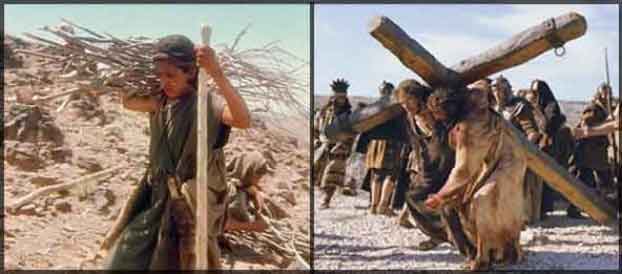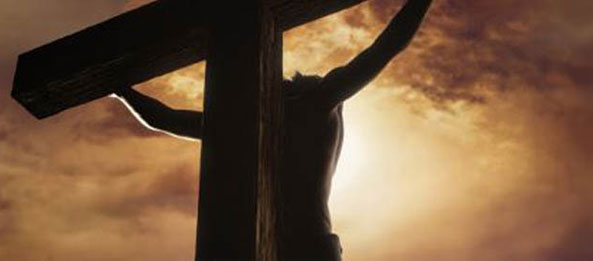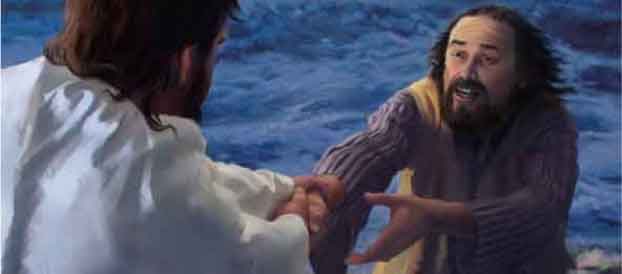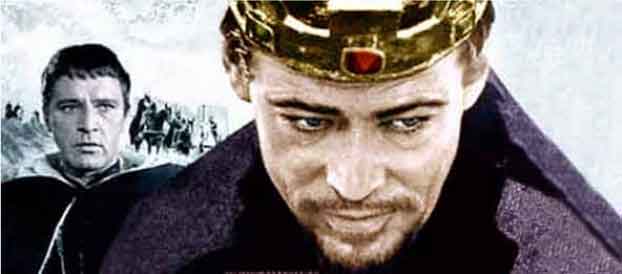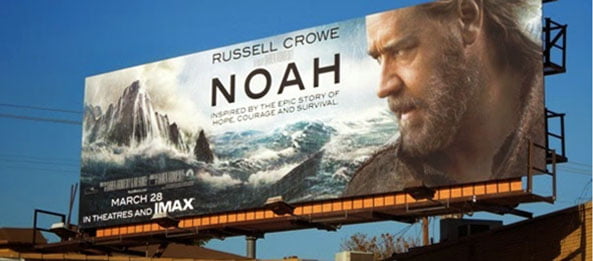Isaac’s Easter
Look at a full moon on a clear night. Its light is captivating, something that has inspired both poems and paintings. But this light is borrowed. It is just a reflection of the sun. Take away the sun and the moon cannot shine; but remove the moon and the sun will continue to blaze with light undaunted. Such is the relationship between the sacrifice of Isaac and the sacrifice of Jesus on ‘the mountain of the Lord.’ Abraham’s willingness to sacrifice Isaac reflected the character of our Heavenly Father, who laid down the life of his Son to redeem this sinful world. The parallels between the sacrifice of Isaac and the cross of Christ are eye opening. Let’s go into the scriptures and take a closer look (Genesis: 1-19).
God set Abraham a test (1). He was to sacrifice his son (2). That’s horrific! We cannot even begin to imagine the confusion and distress that Abraham must have felt. He lived at a time when numerous cults sacrificed children to their gods and he may have wondered if his God was any different. But God stopped him at the crucial moment, as he lifted the knife, showing he was indeed very different.
Now God specifically asked Abraham to sacrifice his ONLY son (2). Sacrificing a son is costly, but sacrificing your only son is more so. But why does God refer to Isaac as Abraham’s only son when he also had an older son called Ishmael? There are two reasons. First Ishmael had grown up and had left to start his own community in the desert; so Isaac was the only son still with Abraham. But more importantly Isaac was Abraham’s only son from the perspective of heaven. God had promised Abraham a son even though his wife Sarah was barren with the obvious assumption was that God would heal his wife so she could conceive. But both Abraham and Sarah got tired of waiting for God to fulfil this promise and they eventually arranged to have a child through Sarah’s Egyptian servant. This child was Ishmael. But God stuck to his promise and Sarah was healed and gave birth to Isaac. And although God said that he would bless Ishmael, he was clear that he would establish his covenant through Isaac and his descendants (Gen 17.19). In God’s mind there was only one son, the one he had promised. And this ONLY PROMISED SON was a reflection pointing to God’s only promised Son. Jesus is God’s only Son and he is the Messiah who had been promised for thousands of years. God’s covenant blessings are stored up in him.
But as we continue with the text we see there are more parallels. God asked Abraham to sacrifice Isaac as a BURNT OFFERING (2). Now when the writer of Genesis says ‘burnt offering’ he has a specific offering in mind. The burnt offering was for atonement (Leviticus 1:3-4). Atonement basically means to be made ‘at-one’ with God; it was for healing and renewing your relationship with him. The sacrificed animal died in your place as payment for sins and its entire body was burnt to nothing to symbolize total consecration. This reflects the symbolism we find in baptism today. Baptism demonstrates that Christ died to pay for our sins, and when we are immersed into water we are immersed into Christ so that we are consecrated and live for him and not for ourselves.
According to the Leviticus verse above, the sacrifice victim had to be a male without defect. The Israelite believer laid their hand on its head to transfer their sins to it, and then they killed the animal before they burnt it. God told Abraham to sacrifice Isaac as a burnt offering, but he stopped Abraham just before he killed him because the real sacrifice lamb was to be God himself in the humanity of Jesus. The cross of Christ was the sacrifice to end all sacrifices. Jesus was the male without defect (without sin) who took everyone else’s sin upon himself.
But the parallels continue. On the way to perform the sacrifice Abraham tells his servants to wait as he and Isaac go up the mountain alone. He says ‘We will go and worship and then WE will come back’ (5). This is interesting, somehow Abraham believed he would sacrifice Isaac and then return to his servants with him alive. Isaac would die but not stay dead! The writer of Hebrews explains: ‘He who had received the promises was about to sacrifice his one and only son, even though God had said to him, “It is through Isaac that your offspring will be reckoned.”Abraham reasoned that God could raise the dead, and figuratively speaking, he did receive Isaac back from death’ (Hebrews 11:17-19). The fact that God had promised Abraham descendants through Isaac led him to believe that God would raise Isaac from the dead. Abraham was not following God blindly, he reasoned it through; Isaac was to be sacrificed, but he would also continue living. In this is a reflection of Christ’s resurrection. Jesus had to be resurrected after his death because God’s promises of resurrection for all his children are bound up in him.
Once a year the Islamic world celebrates Eid ul-Adha, the Festival of Sacrifice, in commemoration of Abraham’s willingness to sacrifice his son out of love for God, but every day of the year Christians celebrate God’s willingness to sacrifice his Son out of love for a lost and fallen world. Abraham’s love for God reflects God’s love for us. To miss this is to miss the main point.
As we continue with the story we see Isaac carried the wood that he was to be sacrificed on to the place of execution (6). This is what Christ did with the cross. On the way Isaac asked Abraham where the sacrificial lamb is, and Abraham says ‘God himself will provide the lamb’ (8). Abraham later discovered how prophetic his words had been when God provided a ram to take Isaacs place (13).
At the place of sacrifice Abraham bound Isaac and put him on the wood (9). This reflects how Christ was nailed to the cross. But we have to now ask; how did this aged man prevent this boy from running for his life? The assumption in scripture is obvious; Isaac did not run, struggle or even shout, he was a willing sacrifice. This is mind boggling, but it reflects Christ. Scripture says Jesus ‘was led like a sheep to the slaughter; and as a lamb before the shearer is silent, so he did not open his mouth’ (Acts 8:32). He understood what the cross was about and was a willing.
Now, as Abraham was about to slay his son the angel of the Lord stopped him saying ‘Do not do anything to him. Now I know that you fear God, because you have not withheld from me your son, your only son’ (12). And Abraham looks up and sees a ram caught in a bush, and he sacrifices the ram instead of his Isaac (13). This is what we call ‘substitutionary sacrifice.’ Isaac was meant to die but the ram took his place. And this is exactly what the cross is all about. We are all supposed to die for our sins, but Christ took our place.
Because Abraham did not withhold his son, God promised to give him descendants like stars in the sky and sand on the seashore (17). Stars could be a reference to heavenly (spiritual) descendants with sand representing earthly (natural) descendants. Followers of Christ are spiritual descendants of Abraham and Israelites are natural ones.
Abraham called the place of sacrifice ‘The Lord will provide’ and from this the Israelites developed a saying ‘On the mountain of the Lord it WILL BE provided’ (14). I wonder what they were expecting God to provide on the mountain of the Lord? To be consistent with what happened to Abraham and Isaac it would need to be another sacrifice victim. And the only one we know of is Jesus.
When Jesus came over 2000 years later he said ‘Abraham rejoiced at the thought of seeing my day, he saw it and was glad’ (John 8:56). And Abraham would have been glad because Jesus was the descendant through whom Abraham’s family would bless all the nations of the world, past, present, and future. Happy Easter!

